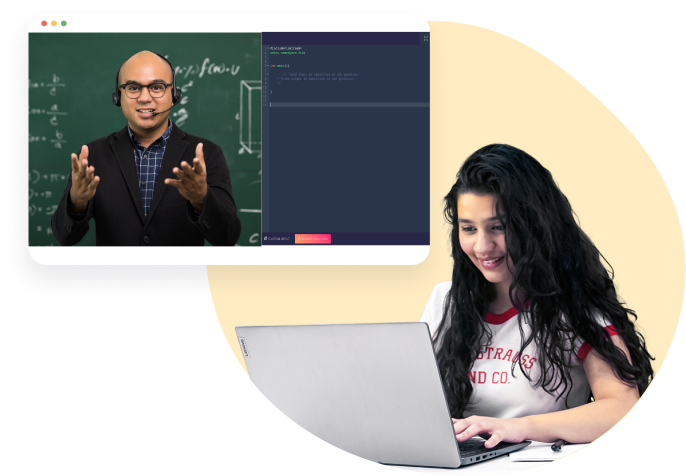Zero to Master Program
DevSecOps
A DevSecOps program integrates security practices into the DevOps process, ensuring secure software development and deployment. It emphasizes collaboration among development, security, and operations teams. Key components include continuous integration/continuous deployment (CI/CD) pipelines, automated security testing, and vulnerability management. The program focuses on shifting security left, addressing issues early in the development cycle. It uses tools like static application security testing (SAST), dynamic application security testing (DAST), and container security. Training and awareness programs are essential for fostering a security-first mindset. Regular audits and compliance checks ensure adherence to security standards. Continuous monitoring and incident response capabilities provide ongoing protection and quick mitigation of threats.
4.8
30K+ Learners enrolled

This is where you embark on an amazing journey!
Most flexible program in the industry

Freedom to learn
Watch classes any time at your convenience

Cheat days
Catch up on the course when life is calling you elsewhere

Features that keep you going

A structured curriculum that makes learning easy

Practice code problems of varying difficulty

Engagement coach to keep you motivated

Compile & run in an integrated coding environment

Get doubts resolved in 30 mins
1:1 sessions over voice call & chat with our
skilled teaching assistants

Industry leading mentors to help you grow

1:1 Mock interviews with resume and career guidance

Structured feedback to make you better

Get a chance to be referred to your mentors’ company

Experience a seamless job switch
with hiring assistance
Skill-based hiring across all levels of experience

The results

7000+
Transitions to product companies

250+
Trusted placement partners
Frequently asked but seldom read questions
Yes, this course is entirely offline, and we offer some courses online as well.
Yes, a basic understanding of software development, DevOps practices, and knowledge of programming languages such as Python or JavaScript is recommended. Familiarity with cloud platforms and basic security concepts is also beneficial.
Completing the DevSecOps course can open up various career opportunities, such as DevSecOps Engineer, Security Automation Engineer, DevOps Security Specialist, and Cloud Security Engineer.
Submissions are evaluated based on criteria such as correctness,
completeness, critical thinking, and adherence to instructions, typically
using rubrics or grading guidelines provided by the instructor.
Meet the faculty legends that will make you legendary
Praveen has a full stack development experience and professional
instructor and trainer for Flutter,
Data Science, Machine Learning and Python Programming. Over the
course of his career he has developed a skill set in analyzing data
and he hopes to use his experience in teaching and data science to
help other people learn the power of programming,
the ability to analyze data, and the skills needed to present the
data in clear and beautiful visualizations.
He is an expert in JavaScript & React (Front-end) and has worked on
open-source projects like Firebug and Zulip.
He has also served as a GCI (Google Code-In) Mentor with Zulip. In
his previous role as a Software Engineer he has worked for
Goibibo-MMT.
Course curriculum for the curious
-History and Evolution of DevSecOps
-Importance of DevSecOps in Modern Software Development
-Course Objectives and Outcomes
-Fundamentals of DevOps
-Continuous Integration (CI) and Continuous Delivery (CD)
-Infrastructure as Code (IaC)
-DevOps Tools and Technologies
-Security Basics
-Types of Security Threats and Vulnerabilities
-Security Best Practices and Standards
-Overview of Security Tools and Technologies
-Integrating Security into DevOps
-Shift-Left Security Approach
-Security in the CI/CD Pipeline
-Automating Security Testing
-Secure Software Development Lifecycle (SDLC)Managing Kubernetes
resources and configurations
-Threat Modeling
-Secure Coding Practices
-Security Code Reviews and Static Analysis
-Infrastructure Security
-Container Security
-Cloud Security Fundamentals
-Managing Secrets and Sensitive Data
-Continuous Security Monitoring
-Log Management and Analysis
-Intrusion Detection and Prevention Systems
-Vulnerability Management and Patch Management
-Security Automation and Orchestration
-Security Orchestration, Automation, and Response (SOAR)
-Integrating Security Tools with DevOps Pipelines
-Case Studies of Security Automation
-Security Automation and Orchestration(SOAR)
-Implementing Compliance as Code
-Governance in DevSecOps
-Auditing and Reporting
-Incident Response and Management
-Incident Detection and Analysis
-Incident Containment, Eradication, and Recovery
-Post-Incident Activities and Lessons Learned
-Advanced Topics in DevSecOps
-Security in Microservices and Serverless Architectures
-Advanced Threat Detection Techniques
-DevSecOps in Emerging Technologies
-DevSecOps Culture and Mindset
-Collaboration between Development, Security, and Operations Teams
-Training and Skill Development
-Measuring DevSecOps Success
-Implementing Security in CI/CD Pipelines
-Conducting Security Assessments and Penetration Testing
-Building and Deploying Secure Applications






































